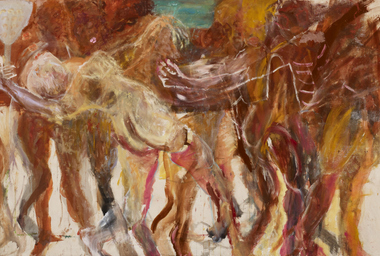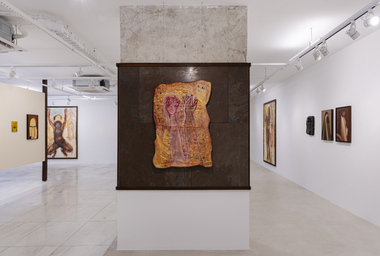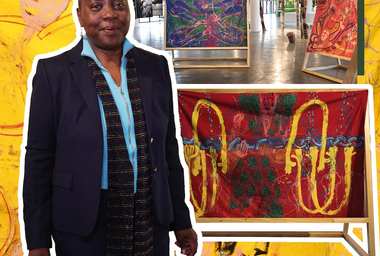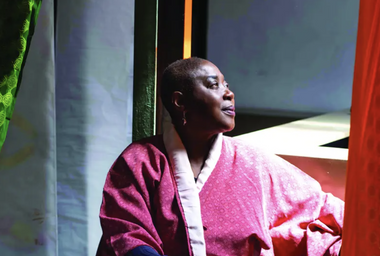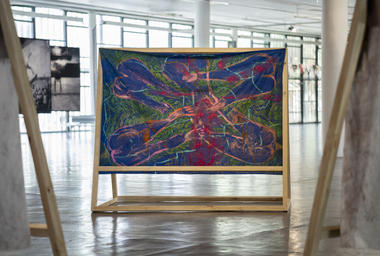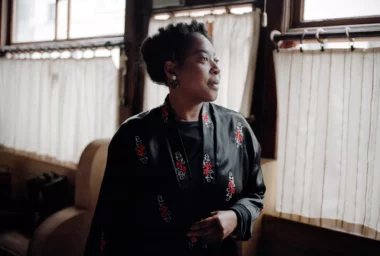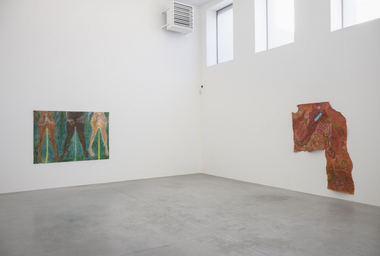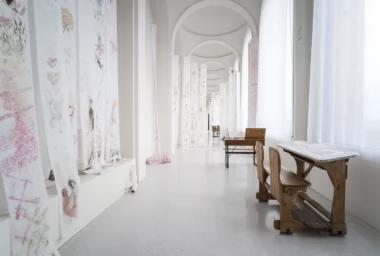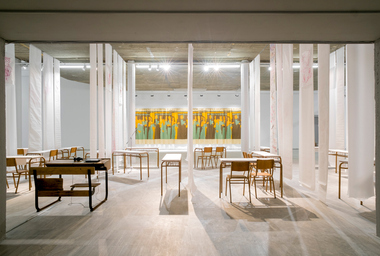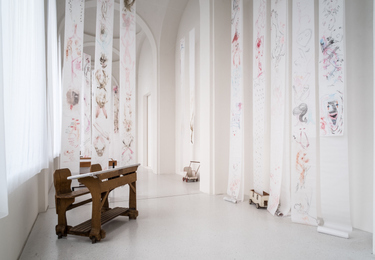
Pélagie Gbaguidi articulates the social and symbolic undercurrents of colonial and postcolonial legacies, processing the signifiers of trauma through materially embodied images. In her paintings and drawings, the artist produces a choreography of blurred, vivid pigments, in which space is disputed by superimposed silhouettes and bodies. The violent clashes between abstract demarcation and figurative reference replicate a tension between recognition and estrangement. The artist describes herself as a contemporary griot – a West-African storyteller, redefining the dimension of orality in traditional heritage through her own approach to plasticity. Gbaguidi often alludes to overlooked stories, ridding them of simplifications and archetypes produced by so-called official historiography.
Among her recent solo exhibitions are Excavation and Knowledge, The Fralin Museum of Art, Virginia, USA (2025); Manifestação, Fortes D’Aloia & Gabriel, São Paulo, Brazil (2025); Antre, La Verrière – Fondation Hermés, Brussels, Belgium (2025); Quel est le sens de la vie sur terre et la fabrique de la conscience, Repaire Urbain, Angers, France (2024); De-fossilization of the Look, Mimosa House, London, UK (2023); Pélagie Gbaguidi: Disclosed Traces and Triadic Apparitions, Sulger-Buel Gallery, London, UK (2018) and El Mundo sans le corps, Sulger-Buel Gallery, London, UK (2016). The artist has also taken part in the group shows 36th Bienal de São Paulo – Not All Travellers Walk Roads: Of Humanity as Practice, Fundação Bienal de São Paulo, São Paulo, Brazil (2025); 18th Istanbul Biennial, Istanbul Foundation For Culture and Arts, Istanbul, Turkey (2025); Corpos Terrestres, Corpos Celestes, Galatea Salvador, Salvador, Brazil (2025); Motel Corona. Resilience Acquisitions by the Flemish Community, S.M.A.K., Municipal Museum of Contemporary Art, Ghent, Belgium (2023); Ecrire, c’est dessiner, Centre Pompidou-Metz, Metz, France (2021) and documenta 14, Neue Galerie, Kassel, Germany; Documenta 14, Athens Conservatoire (Odeion) / Benaki Museum of Islamic Art, Athens, Greece (2017).
The artist has works in important public collections, such as S.M.A.K. Municipal Museum of Contemporary Art, Ghent, Belgium; KANAL-Centre Pompidou, Brussels, Belgium; Chateau de Rochechouart – Musée d’art contemporain de la Haute-Vienne, Rochechouart, France; Kunstmuseum Basel, Basel, Switzerland; Instituto Inhotim, Brumadinho, Brazil; Musée d’Ixelles, Ixelles, Belgium; M HKA Museum of Contemporary Art / City of Antwerp, Antwerp, Belgium; CNAP Centre National des Arts Plastiques, Paris, France; Holocaust Memorial Foundation, Chicago, United States of America; Mu.ZEE, Ostend, Belgium; Memorial ACTe, Pointe-à-Pitre, Guadeloupe, France; Artothèque, Saint-Denis, Réunion, France and Casa África, Las Palmas de Gran Canaria, Spain.
